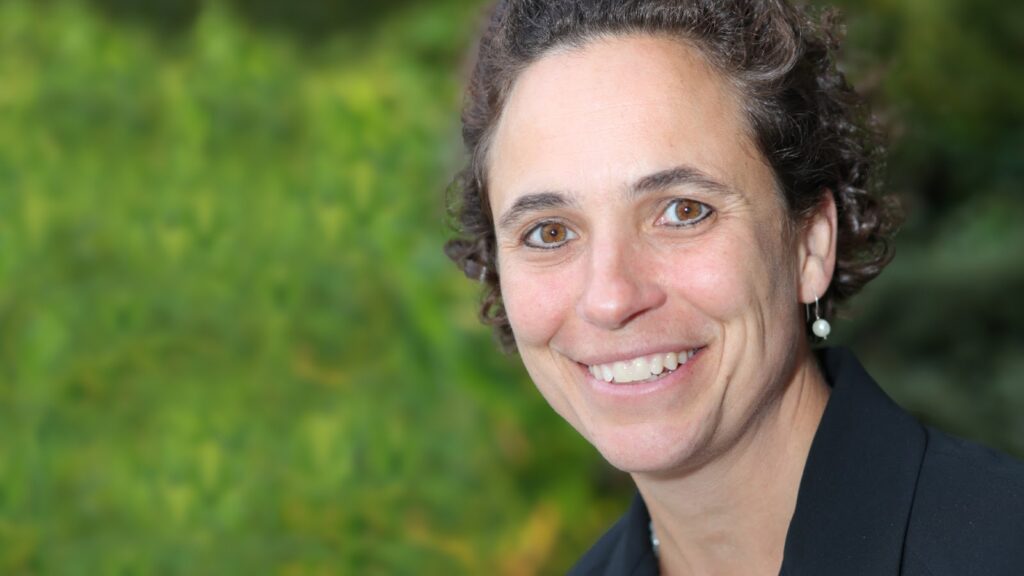What Could Be: Championing Local Communities Through Social Entrepreneurship
Diana Wells, PhD, President Emerita of Ashoka
Fulbright U.S. Student to Trinidad & Tobago, 1995,

Often referred to as a “social innovation champion,” Dr. Diana Wells has used her many international experiences to positively impact under-resourced communities by fostering social entrepreneurship and changemaking.
Dr. Wells’ first global experience—which she calls her “first Fulbright”—was when she accompanied her father, Ronald A. Wells, to Finland for his Fulbright to teach at the University of Oulu in 1968. “For a child that was just learning to recognize and speak language,” Dr. Wells notes, “that year 90 miles from the Arctic Circle offered me new sounds and sights.” Upon returning to the United States, Dr. Wells’ father continued to stay connected with the Fulbright community and established an alumni association chapter in Connecticut.
At the age of 20, Dr. Wells spent a transformative year in Varanasi, India. The experience had a profound impact on her: “My world was turned on its head…having been through that experience, it helped me recognize the possibilities of what could be, rather than accepting as a given what was.” While abroad, she noticed that local solutions to social, economic, and cultural challenges, undertaken by committed leaders, could help solve global problems. This realization shaped her way forward—inspiring continued engagement in making the world a better place.
Dr. Wells received her Bachelor of Arts degree in South Asian Studies from Brown University in 1988 and began working at Ashoka, an international organization that supports social entrepreneurship. During her tenure, Dr. Wells built tools to measure the impact of social entrepreneurship and continued to refine her academic knowledge. In 1995, she received a Fulbright U.S. Student Program award to conduct research in Trinidad and Tobago. Her project, “Trinidad: Engendering a Multi-Ethnic Society,” inspired her subsequent PhD in Anthropology at New York University. Her dissertation, “Between the Difference: The Emergence of a Cross Ethnic Women’s Movement in Trinidad and Tobago,” distilled her findings on social anthropology and informed her important work at Ashoka, where she became president in 2005.
“Fulbright certainly did have an impact on my career and trajectory,” Dr. Wells says of both her 1995 experience in Trinidad and Tobago and her early exposure to Fulbright while with her father in Finland. “It was my year in Trinidad…where I could fully immerse myself in the question of how women in Trinidad came to find common ground between their differences to build a better future for their country, that most inspired my next career choices.”
Dr. Wells has also served local and global academic communities through her leadership. She was a Woodrow Wilson Fellow, a Trustee of Brown University and Guidestar International, and an Advisory Board member for Duke University’s Center of Advancement of Social Entrepreneurship (CASE). She received the highest honors from the Brown University Alumni Association and a “Women to Watch” award by Running Start, a Washington, D.C.-based nonprofit that empowers young women to be political leaders. Dr. Wells has also taught anthropology at Georgetown University.
As President Emerita at Ashoka, Dr. Wells has this advice for those looking to make a difference: “The biggest barrier for changemaking is that people don’t give themselves permission to begin. Every day I [encounter] people who are enacting [change] again and again…our strategy is to come against the perception that change is not possible and ensure more young people have the ability and skills to do so effectively.” Through her leadership, Dr. Wells inspires her students, colleagues, and community members to bring a changemaker mindset to the barriers we face in order to make positive social change for the good of all.